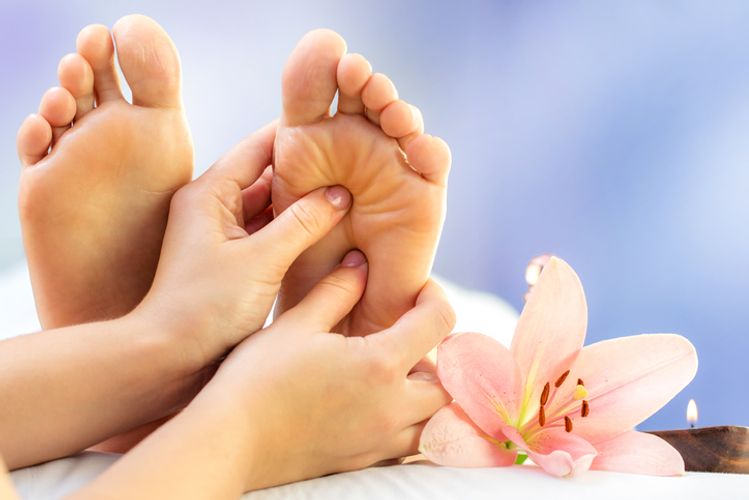Problems with circulation, metabolism and excessive stress are just some of the ailments that reflexology can treat. Already in ancient times, it was believed that this practice is a way to regain health and get rid of any diseases that may make everyday functioning difficult. What is reflexology, what do the mysterious receptors on the feet mean and how can pressing them affect our health?
Reflexology is also known as zone therapy and is classified as holistic medicine. It is based on skillful pressure on specific places on the feet,. These places are called reflexes. By pressing specific points, you can improve your overall well-being and influence the functioning of the entire body.
Reflexology is considered a self-healing process that does not require the use of additional measures. However, doctors advise to always combine alternative and conventional medicine – it brings the best effect then.
According to specialists, reflexology has its origins around 5000 BC. in China. Reflexology referred to the assumptions of traditional Chinese medicine, according to which the human body consists of energy channels, called meridians, through which life energy flows. Any disturbances related to energy flow manifest themselves in the form of various diseases and ailments.
The human foot has the endings of as many as 7,200 nerves that are connected to the brain and therefore to other parts of the body. The proper functioning of all systems, glands and organs ensures our health and well-being. If their work is disturbed, we feel it in our body in the form of various physical and mental ailments.
There are specific points on the feet called reflexes that correspond to specific organs of the human body. Reflexology involves applying appropriate pressure to these areas, which helps eliminate many health problems. If pain occurs when a given area is pressed, it may indicate a disease of the related organ. Reflexology is increasingly used as a complement to conventional medicine.
Thanks to it, it is possible to achieve surprising results in the treatment of various diseases and ailments. The work on reflexes stimulates the flow of nerve impulses. Massaging individual places on the feet has a positive effect on the blood supply to diseased organs and strengthens the body’s vitality. Thanks to this, the body regenerates faster. The therapy also helps improve metabolism and has a positive effect on cleansing the body. It also has an analgesic effect.
Reflexology begins with warming up the feet, i.e. appropriate stretching and relaxation exercises. Reflexology then moves on to massaging individual reflexes using appropriate therapeutic techniques. Typically, reflexology uses a combination of deep massage and gentle touch. However, in the case of patients undergoing the procedure for the first time, gentle stimulation is recommended. During therapy, the patient should feel relaxed.
Reflexology, apart from treating physical ailments, also has a great impact on our psyche. Reflexology helps you regain internal balance, reduce tension and help you cope with stressful situations more easily.
After just a few treatments, the patient may experience increased energy levels. Reflexology helps fight emotional problems, preventing depression and nervous disorders. Physical and mental health are the basis for feeling inner peace and complete happiness.
Contraindications:
– Acute conditions requiring surgical treatment.
– Conditions immediately before and after surgical procedures.
– Patients before and after organ transplants.
– Fresh wounds.
– Post-traumatic conditions (e.g. fractures)
– Severe infectious diseases.
– Lymphoma.
– Endangered pregnancy.
